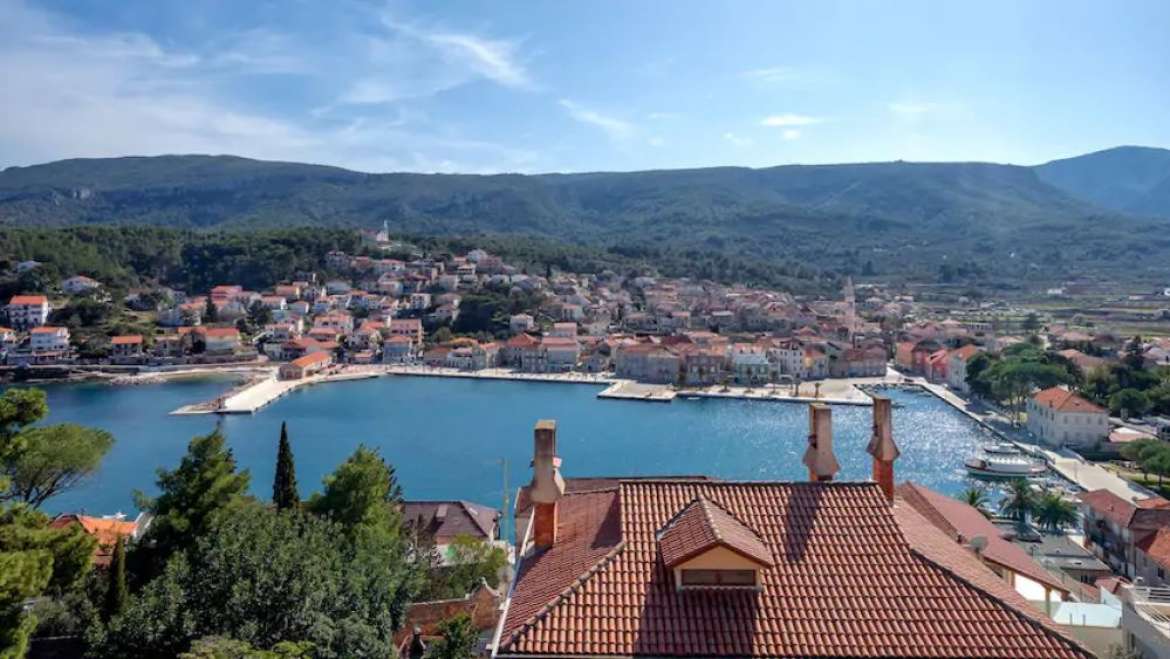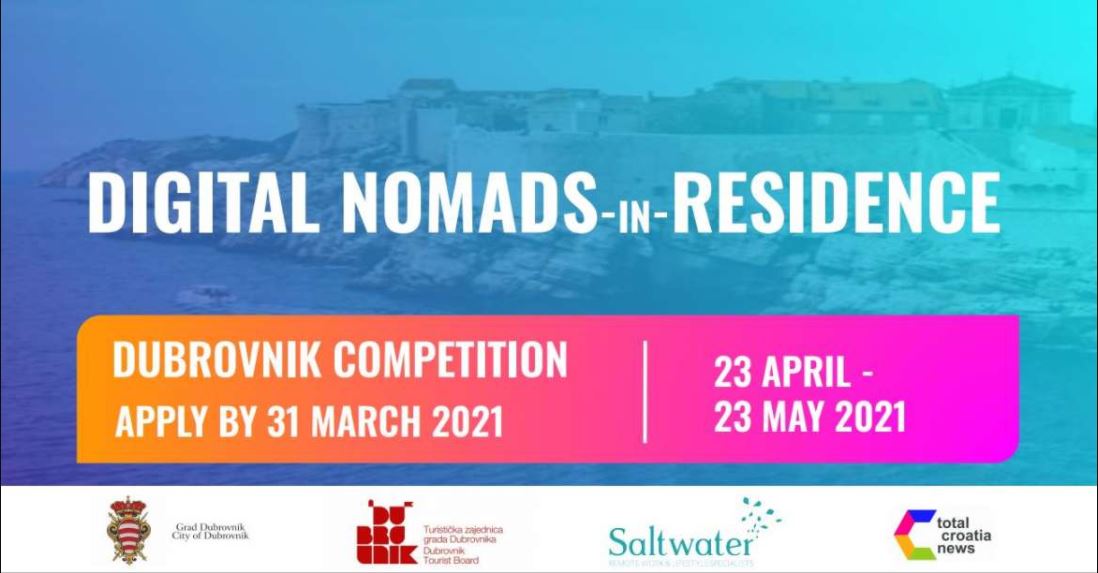March 7, 2021 - Americans in Croatia are very welcome guests, and many would come for long if it was possible. It is now, if you are a remote worker. Meet Jessica Romano from San Francisco, officially the first approved digital nomad on Hvar. Congrats and welcome!
"As you probably know, Paul, Americans in Croatia can only stay for a limited time. We LOVE Jelsa, and your apartment is really great, and we would rent it through the winter if we could stay. I read on TCN about this digital nomad visa? Is it coming soon? Do you think I could get one?"
Americans in Croatia - from a temporary stay in Jelsa to a 12-month permit.
That was back in early November when Jess and Thibaud rented our Panorama Penthouse Jelsa apartment for a couple of months. Some nice and unexpected income so late in the year. And there would be more rental income out of season if they were allowed to stay longer. Currently, Americans in Croatia can only stay 90 days at one time.
So there we were, in a situation where we both wanted to engage with Croatian bureaucracy (my favourite hobby) to get a result for Jess. She and Thibaud are amazingly thoughtful and respectful guests, even baking cookies for my punica, which makes me a little bit cooler in my punica's eyes by association.
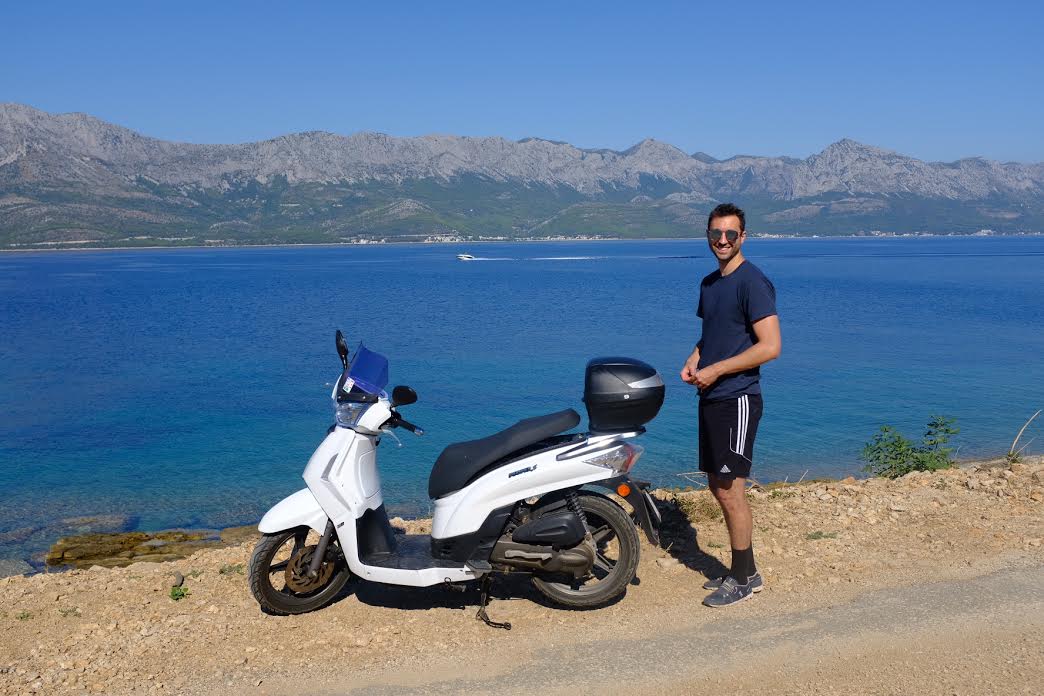
I helped where I could, as did several others. It seems that Jess and Thibaud have been a hit in the Jelsa community, helping several people, as well as bringing a little colour and fresh perspective to the long Dalmatian winter.
And yesterday, some great news, as Jess informed me that she heard back from the authorities at MUP and has been approved for a 12-month stay.
Great news and congrats. Jess kindly took the time to tell me more about, winter in Jelsa, and what the visa means for her.
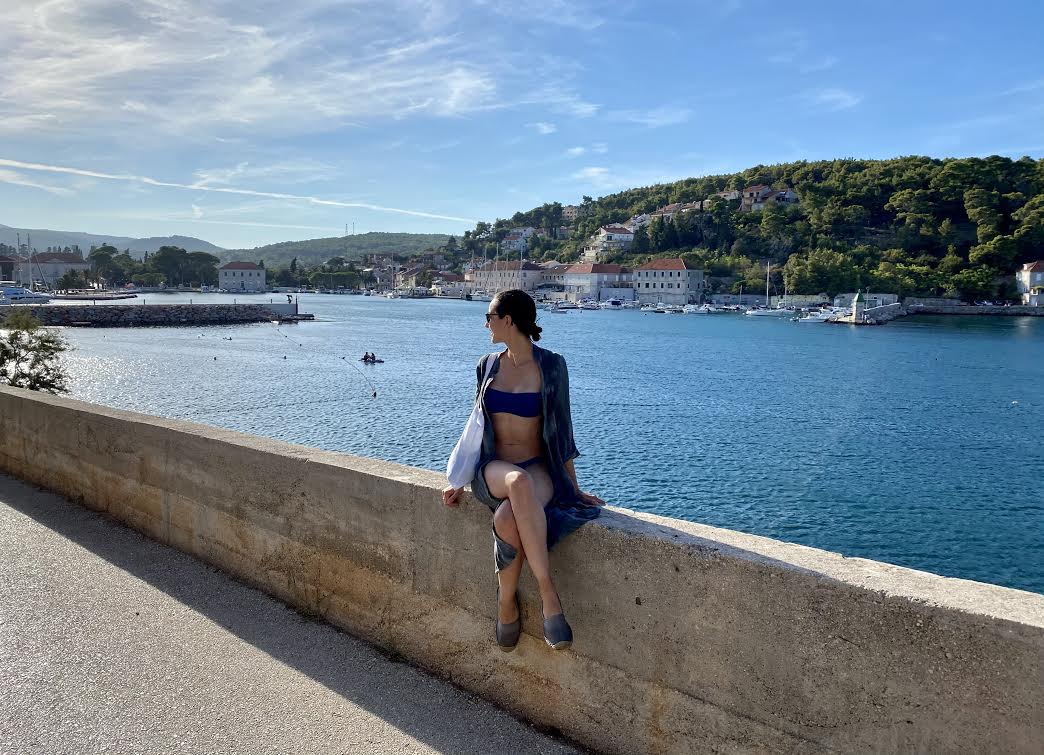
Firstly, how are you enjoying winter on Hvar? Has the reality been a little different to what you were expecting? In what way?
I’ve been enjoying it - Hvar is beautiful year-round! I didn’t have many expectations heading into the season, especially as Covid-19 dragged on into 2021. Due to pandemic restrictions, most restaurants and cafes were closed, and people haven’t been out very much. Since this is my first winter season on the island, I don’t have a point of comparison; generally, the slow pace and absence of crowds has been great. The weather and temperature has been mostly mild, but I was surprised by 1-2 week-long rainy stints. We are familiar with jugo and bura by now. I told friends here that I’ve felt quite tired during jugo, and they said that I’m officially a local now. Alas, those cloudy periods make the sunny days even more wonderful. It can get quite warm when the sun is out - if you haven’t looked at the calendar, you might think it’s summer at times! I’ve spent a lot of time outdoors - hiking, walking, rock climbing & running - and recently bought a car to explore the island. I feel as though you could live on Hvar for years and not discover all of the unique villages, ruins, beaches and trails here. Even though most wineries are closed in the winter, some offer tastings by appointment, and I’ve stopped by local producers to pick up bottles to enjoy at home.
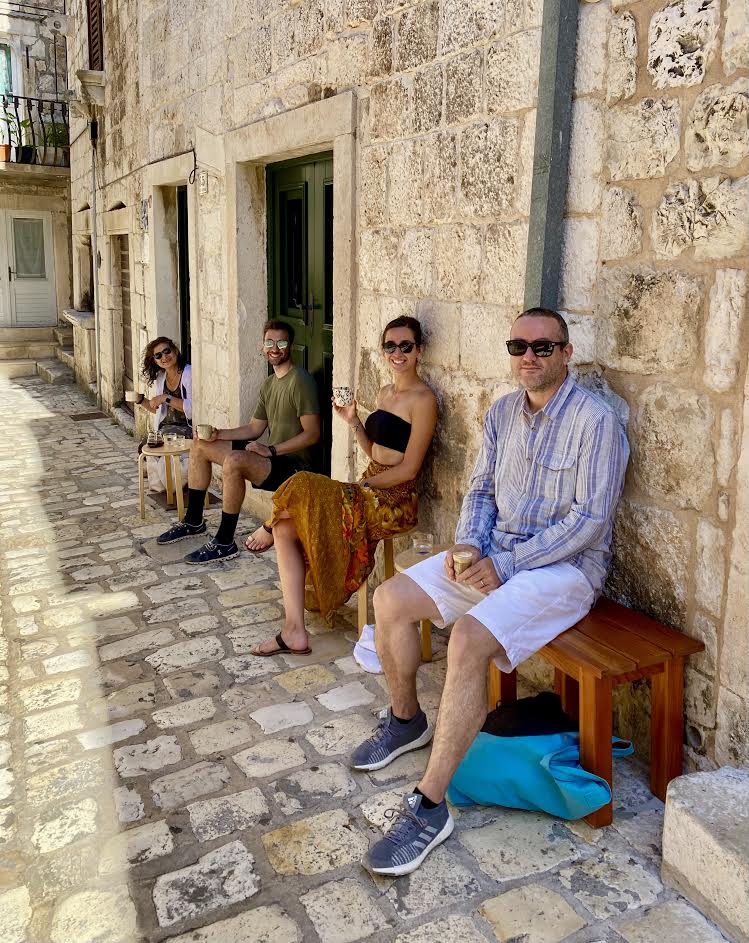
You recently became a TV celebrity - tell us about that experience. You did a great job promoting the digital nomad lifestyle to a domestic audience. I think a lot more people here now understand it better.
Who thought we’d ever be on Croatian TV?! Wow, what a fun experience. We were delighted when the Puls team reached out to feature us in their digital nomad series, and were especially excited to share our positive experiences in Croatia. We shot the film over a few days - at our apartment, in Jelsa & Hvar town, and near Zavala. Filming the reportage is a lovely memory for us, as was spending time with the producers, Maja and Jura. They are a joy to work with and made us feel very comfortable in front of the camera. The reportage captured moments of our everyday life. It also showed that digital nomads can benefit from living in Croatia and that likewise, Croatia can benefit from digital nomads integrating into the community. We are so grateful to the people of Hvar (and Croatia, as a country) for embracing us.
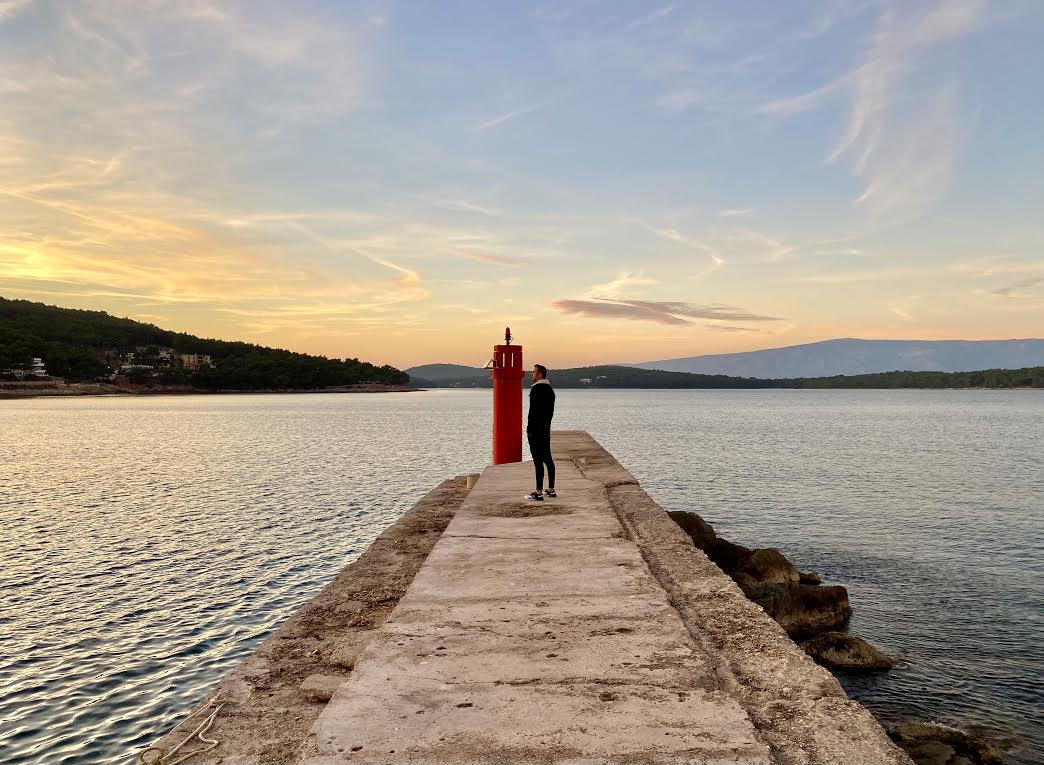
An American on Hvar. That can only happen for a finite length of time, normally, but you had good news come recently - your application for the digital nomad visa has been approved. Congrats! Tell us more.
Puno hvala! It’s exciting to be one of the first people to receive approval for Croatia’s new digital nomad visa. It is rather incredible that Croatia created and approved the digital nomad visa in such a short period of time.
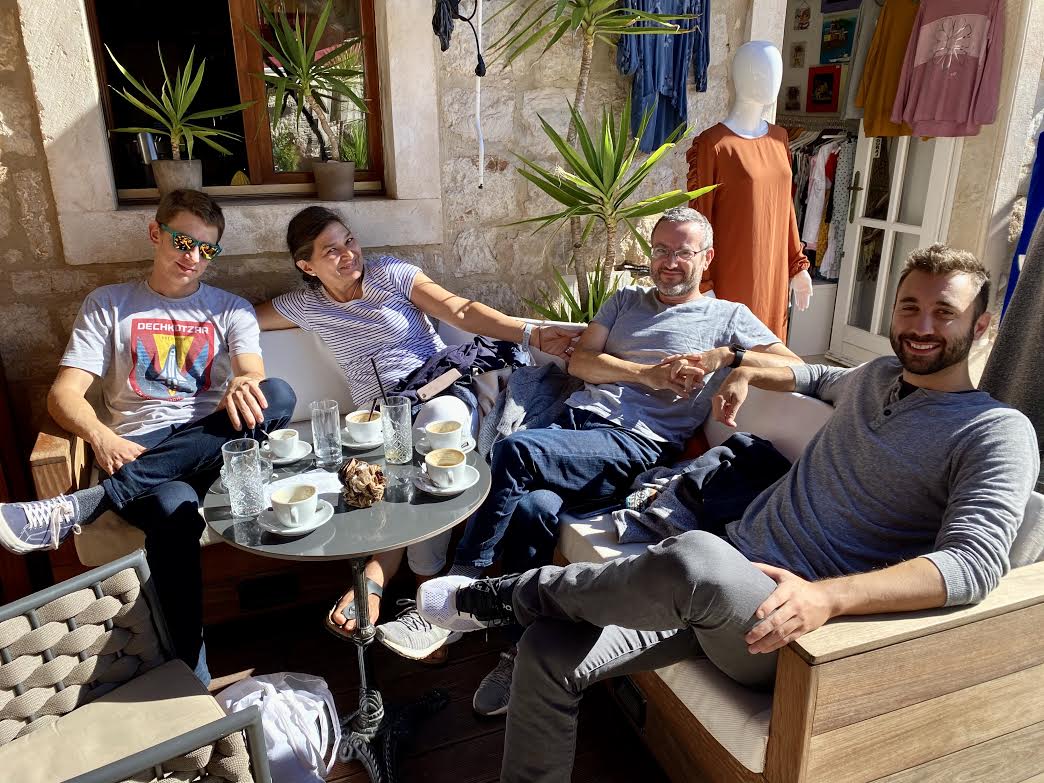
Tell us about the process and what you needed exactly?
Since I had already obtained a temporary residence permit and some of the requirements overlap, the change was relatively simple. I applied shortly after the visa was announced in January and submitted my paperwork through the Hvar police station. Shout out to Ivana for helping us through the process! The digital nomad visa is new for everyone, the MUP and applicants alike, so it felt like we were all learning together. I provided proof of employment (on official company letterhead), proof of health insurance (foreign and travel), proof of income (pay stubs), the completed application form, a copy of my passport and a small photo for the ID. I paid a fee - if I recall correctly, it was 600kn plus 70kn in stamps. I signed a document to request the revocation of my temporary residence permit in order to apply for the new visa. The MUP provided me with a document stating that I was legally in Croatia while ‘between’ visas. The whole process took 4-6 weeks. Big thanks to all of our friends and acquaintances who advised me through the process, including you(!) and Jan de Jong.
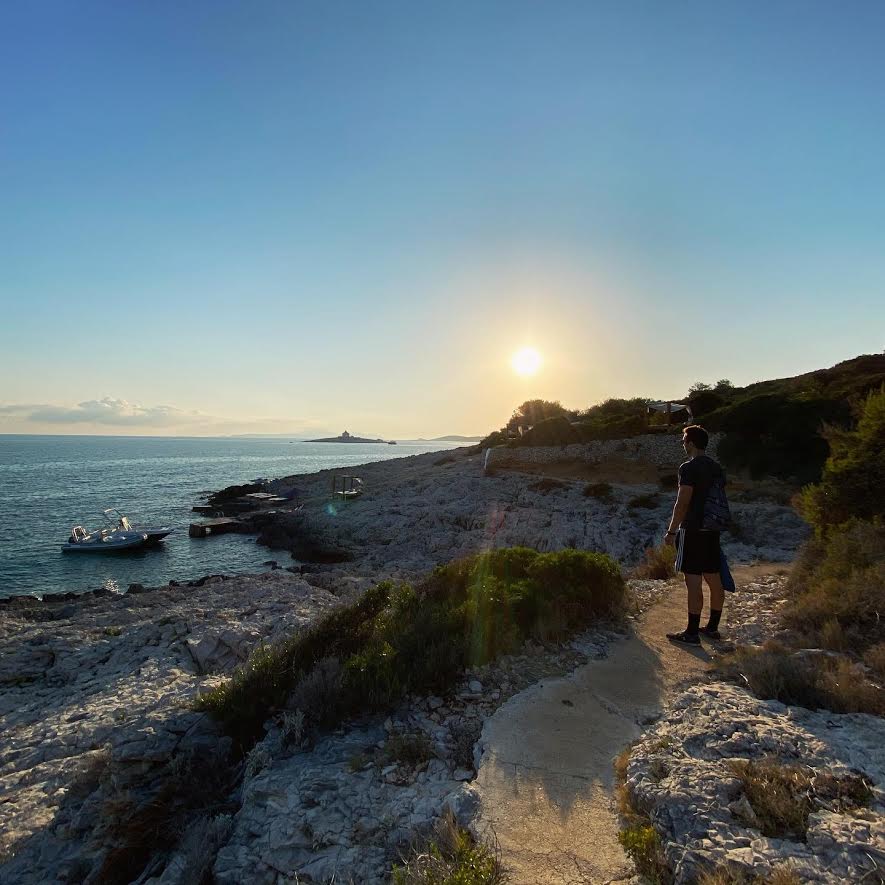
What exactly does it mean for you and your lifestyle to now be able to stay in Croatia for 12 months?
Being able to stay in Croatia for an extended period of time means two big things for me. Firstly, I have more options on the table regarding where I want to live and work. Secondly, it actually provides some stability as we all enter a post-pandemic world. Like many people, my life shifted in 2020 - there were circumstances I couldn’t control but there were choices I could control. One of those choices was to relocate to Europe. My original intent was to stay for a few months and then travel around the continent but I wanted to stay in Croatia. After my tourist visa expired after 90 days, I applied for and was granted a temporary residence permit. The digital nomad visa provides a longer-term solution for staying in Croatia and removes the stress and uncertainty of having to re-apply for extended temporary residence. Now I don’t have to worry about leaving Croatia for a year and can focus on my life and work here. Something I didn’t fully realize before landing in Croatia is that it takes several months to settle into a new place. Getting comfortable with the environment, people, way of life - it all takes time. Having the option to stay for a year gives me the opportunity to more deeply explore the culture and what it would be like to live in Croatia long-term. I wouldn’t be surprised if other digital nomads choose to lay down roots in Croatia - either through starting businesses, buying property or becoming part of the community - because they have the chance to spend sufficient time here before making those decisions.
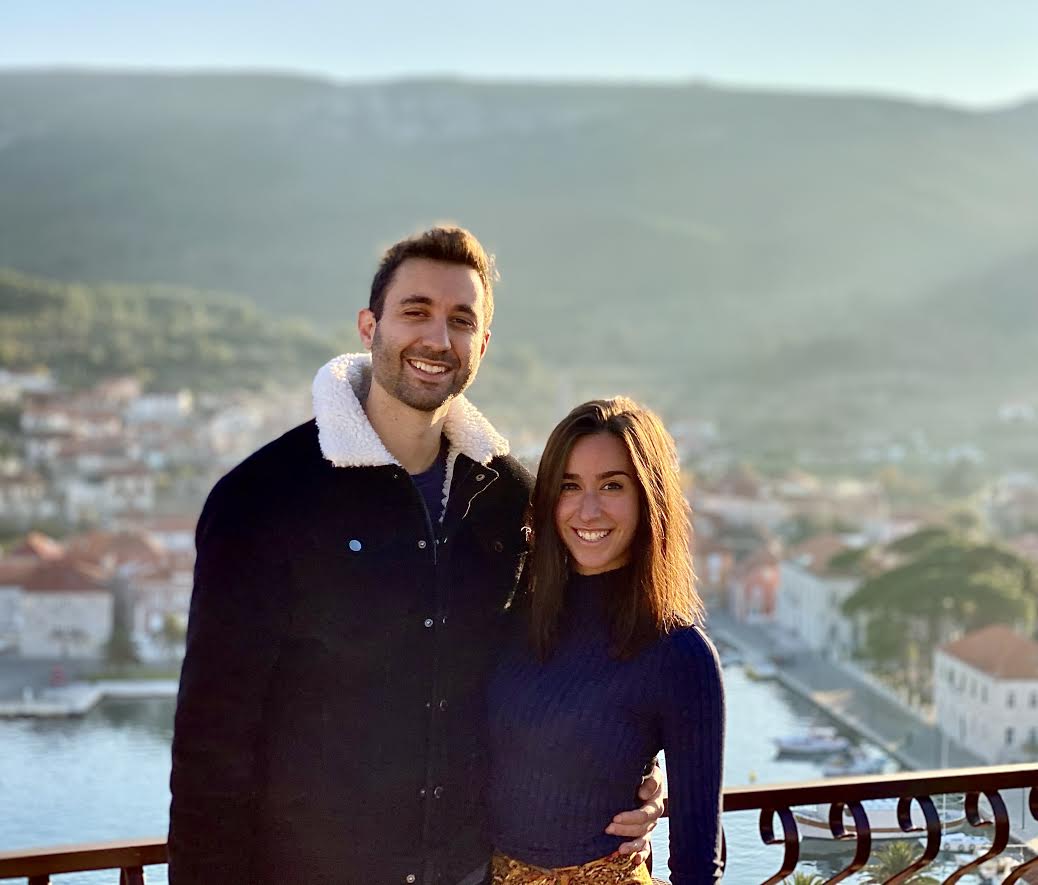
What message do you have for fellow international remote workers about life in Croatia off-season. What are the pros and cons?
Croatia is an excellent option for digital nomads all year-round. It’s worth noting that my perspective is based on spending the majority of my time on Hvar - which is a place that I’ve grown to love and can recommend highly! But from what I know, there are many awesome destinations within the country, and there’s somewhere for everyone. Big cities, tiny villages, and everything in between - as well as over 1000 islands (though not all of them are inhabitable). The landscape varies vastly across the country, from mountains to farmland to (a very long) coastline. I was slightly concerned about being able to find a high-speed internet connection, but it’s not been a problem. Most Croatians I’ve met are willing to speak English, so there is no language barrier in terms of being able to get around and communicate generally. Every location has its perks and quirks - as long as you are determined and have an open mind, you’ll be able to make it work. There’s heightened energy and tangible efforts around making Croatia a premier destination for digital nomads, making it a great place to be right now.
Here is the great feature on Jess and Thibaud which aired on Croatian primetime TV on HRT Puls.
If you want to learn more about their story, they gave a great interview on TCN back in December, when the digital nomad opportunity was still not officially in place. Read Digital Nomad Life in Croatia: Jess and Thibaud, from San Francisco to Jelsa.
That means that there are now at least two Americans in Croatia with the digital nomad visa. Meet the first-ever recipient of the visa - Meet Melissa Paul, Owner of Croatia's First Digital Nomad Visa.
Are you a digital nomad who would like to spend 4 weeks as a guest of the City of Dubrovnik? Learn more in Dubrovnik Launches World's First Digital Nomad-in-Residence Competition.
For the latest news and features about digital nomads in Croatia, follow the dedicated TCN section.
How many Americans in Croatia are there? We are looking to do a series on Americans in Croatia, so if you are here and would like to be featured, please contact This email address is being protected from spambots. You need JavaScript enabled to view it. Subject Americans in Croatia.


